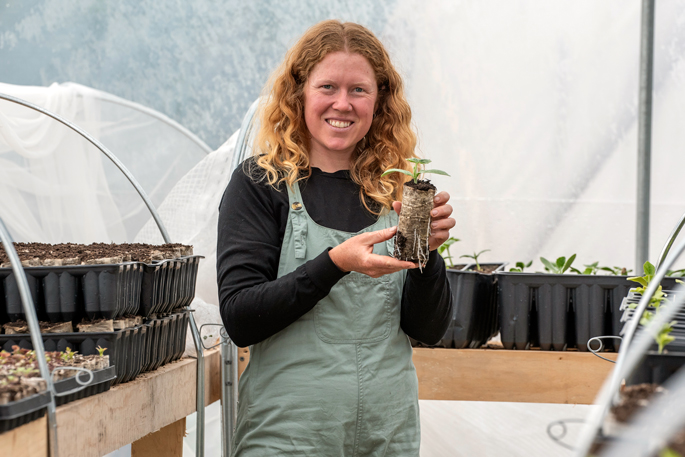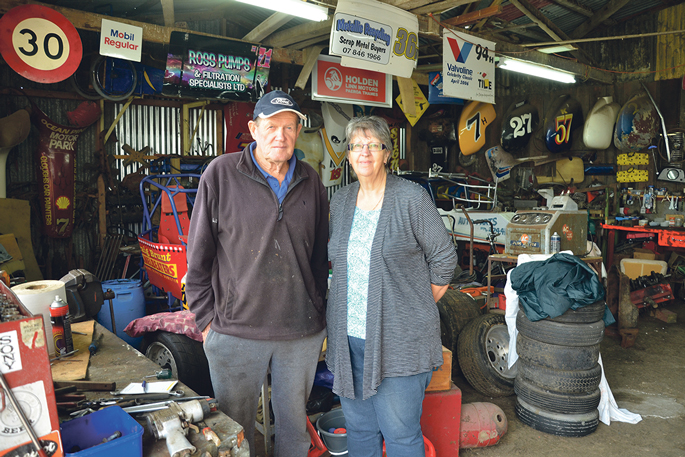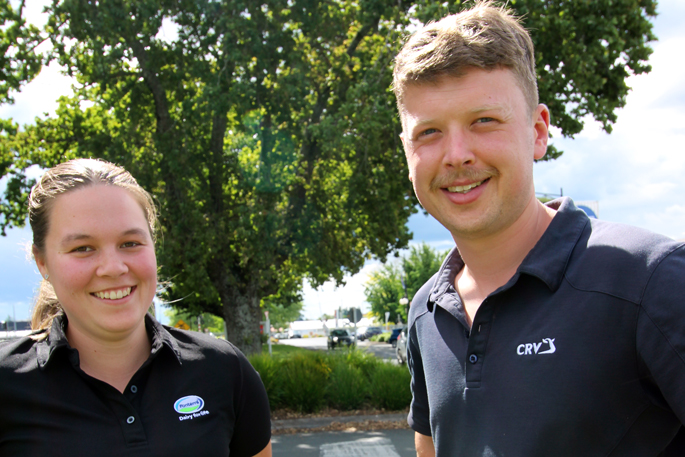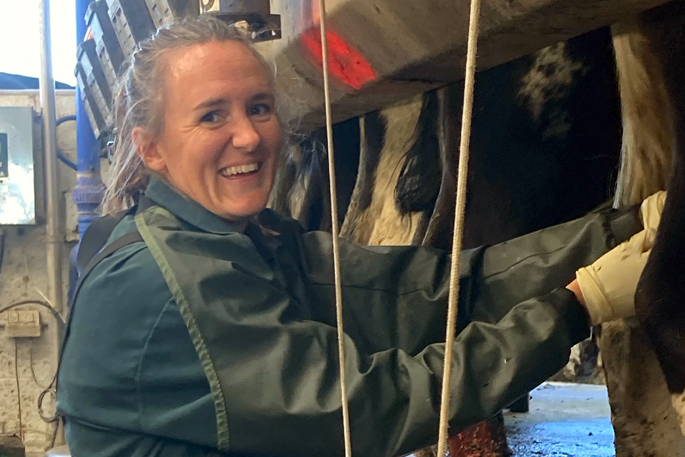The Red Meat Profit Partnership is delivering a significant boost to New Zealand’s primary sector, returning $17 in value for every dollar invested, according to an independent evaluation of the project.
A $64 million Primary Growth Partnership programme, the RMPP has brought together farmers, meat processing companies, Beef+Lamb NZ, banks, and the Ministry for Primary Industries in an innovative seven-year collaboration to improve the productivity and profitability of NZ’s sheep and beef sector.
Now, research conducted prior to RMPP finishing in March 2021, has highlighted the value of the programme to the wellbeing of the industry.
The evaluation by Scarlatti Limited concluded that the programme’s productive benefits will lift annual total farm profit before tax by a further $96.4 million by 2025. The benefits continue beyond that point, meaning that for every $1 invested, RMPP will return $17 in value.
“Farmers have been telling us for some time about how RMPP has helped them access information and support so they can make more informed decisions for the benefit of their businesses,” says RMPP chair Malcolm Bailey.
“Additionally, what this independent evaluation clearly demonstrates is the range of real and tangible benefits that RMPP has delivered – both behind and beyond the farm gate and in rural communities across NZ.”
RMPP’s projects such as the Action Network and the NZ Farm Assurance Programme wouldn’t have been achieved without RMPP programme investment and coordination, says Malcolm.
“Farmers and red meat sector businesses have successfully developed, tested and introduced new ways of engaging with information and technology. Farmers are adopting more effective measuring and monitoring to support informed decision-making and are increasingly using digital farm management tools.
“Hundreds of like-minded farmers who are working together alongside trusted experts in facilitated small groups now have the confidence to put their ideas into action.
“RMPP’s Action Network has never been about telling farmers what to do. It has been about creating an environment where farmers can learn from each other, share what works, embrace change and make better decisions for the future of their business, their family and NZ.
“Farmers want to do well to support their families and their way of life, and when farmers are doing well, NZ does well.”
Key findings
According to research by Scarlatti Ltd, farms participating in the RMPP Action Network will, on average, increase profitability by $17,712 per farm, each year. When averaged across the sector, including farms that gain a ‘spill over’ benefit and farmers that do not benefit, the impact of the Action Network is to raise profitability by $46 million across the entire sector, by 2025.
The impact on profitability for farmers participating in training programmes varies depending on whether they’re engaging with an e-learning module or undertaking a multiday training workshop. The aggregate impact of all training courses, including farmers that gain a ‘spill over’ benefit and farmers that do not benefit, is to raise industry profitability by $18.5 million across the entire sector, by 2025.
In 2025, the increase in profitability resulting from RMPP’s investments in talent attraction will be $3.15 million across the entire sector.
The Electronic Animal Status Declaration (eASD) technology is saving farmers, livestock representatives and meat processors’ time and reducing costs. In 2025, the eASD development is projected to be generating an annual economic benefit of $6.69 million across the industry.
In 2025, the NZ Farm Assurance Programme is projected to be generating an annual economic benefit of $0.9 million across the industry.
Action Network
More than 1500 farmer businesses, 90 facilitators and 205 Action Groups have now joined the RMPP Action Network, which has improved farm productivity and profitability by helping farmers make more informed decisions.
“Members of Action Groups are working together with other like-minded farmers and rural professionals to identify ways to improve the performance of their farm business,” says Malcolm.
“They’re also benefiting from a network of experts who can share new knowledge and ideas. Small farmer-led groups supported by facilitators, experts, tools and resources are one of the most effective ways to help farmers make positive changes on-farm and improve their productivity and profitability.”
According to UMR Research, the Action Network is operating successfully and adding value for farmers.
“Farmer members like how it is strongly focussed on a topic, farmer-led, and well organised by trained facilitators. It is playing a critical connection role among red-meat farmers,” says Malcolm.
“These connections are leading to improved farmer wellbeing and sustainable practice change. There is solid evidence of practice change.
“The collective experience of farmers in many groups is considerable and, in most cases, well-trained facilitators are ensuring this experience is capitalised on. When this is supplemented with quality independent experts, the ground becomes very fertile for farmers adopting new practices.”
People and capability
“In farming, people matter and RMPP has been working to help our farmers develop their skills and knowledge and attract the next generation of top talent to our sector,” says Malcolm.
According to research by Scarlatti Limited, the impact on profitability for farmers participating in training programmes varies depending on whether they are engaging with an e-learning module or undertaking a multi-day training workshop.
The aggregate impact of all training courses, including farms that gain a ‘spill over’ benefit and farmers that do not benefit, is to raise industry profitably by $18.5 million across the entire sector, by 2025.
“RMPP has also helped to attract more talented employees and increase the productivity and profitability for farm businesses in the red meat sector,” says Malcolm.
“In 2025, the increase in profitability resulting from RMPP’s investments in talent attraction will be $3.15 million across the entire sector.”
Resources and tools
“We’ve made it easier for farmers to collect, understand and analyse data to get a more complete picture of their farm business and where they can improve,” says Malcolm.
The development of the nProve user interface is expected to increase farmer productivity and profitability from livestock genetic improvement.
In 2025, the increase in profitability resulting from the nProve user interface will be $5.3 million across the entire sector. However, this value will continue to increase reaching $29.5 million across the entire sector by 2040.
DataLinker will save farmers’ time collecting, completing and submitting data to multiple services. It will also save time for data users, who can access farmer data without the need for data collectors to spend time gathering data or for data entry once data has been collected.
The Electronic Animal Status Declaration (eASD) is saving farmers, livestock representatives and meat processors’ time and reducing costs. In 2025, the eASD development is projected to be generating an annual economic benefit of $6.69 million across the industry.
“Farmers will gain approximately 68 per cent of this benefit, meat processors a further 26 per cent and other parties – such as stock agents – the remaining six per cent,” says Malcolm.
Assurance and provenance
“Quality products will always get the best return, and we’ve collaborated with others to develop the NZ Farm Assurance Programme – a standard, nationwide approach to quality assurance that will open doors to new markets and reduce risk for farmers,” says Malcolm.
“We have worked with meat processing companies and Beef + Lamb NZ to help tell our story better, support the development of a country of origin brand, ‘Taste Pure Nature’, and generate more value from our global markets.
“The average number of audits each farmer is required to conduct has reduced as the NZFAP becomes established as the standard QA programme across the industry,” says Malcolm.
In 2025, NZFAP is projected to be generating an annual economic benefit of $0.9 million across the industry. The evaluation results were peer reviewed by Sense Partners Limited.







0 Comments
Leave a Comment